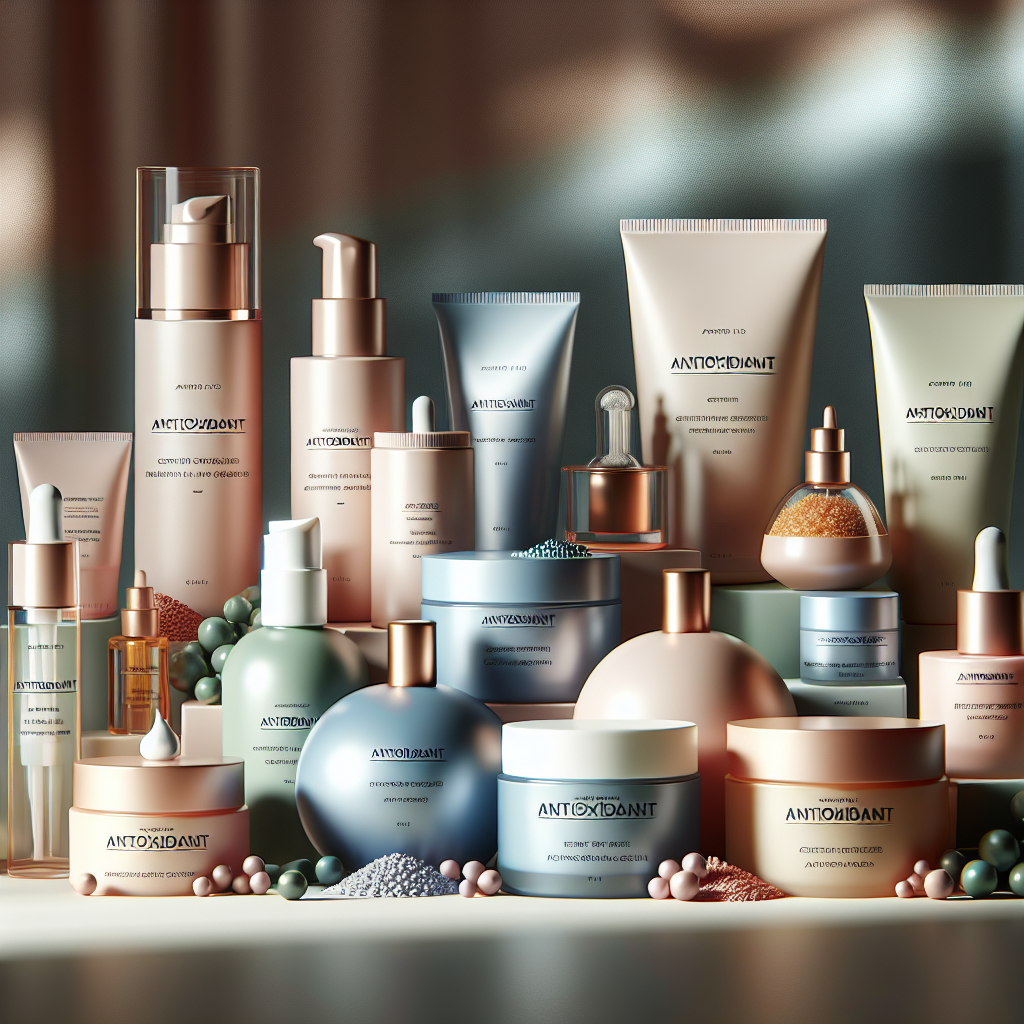In the quest for youthful, radiant skin, antioxidants have emerged as crucial allies. These potent molecules are the body’s defense against the detrimental effects of oxidative stress, which can accelerate aging and damage skin at a cellular level. This comprehensive exploration delves into the function of antioxidants in skin care, outlining how they can prevent damage and support the skin’s natural repair mechanisms.
Understanding Oxidative Stress and Skin Damage
Oxidative stress occurs when there is an imbalance between free radicals—unstable atoms that can damage cells—and antioxidants in the body. This can lead to cellular damage and inflammation, which are key contributors to aging and various skin conditions. Sources of oxidative stress include UV radiation, pollution, smoking, and even the body’s own metabolic processes.
The Protective Power of Antioxidants
Antioxidants work by neutralizing free radicals, thus preventing them from causing harm. They contribute to the skin’s health in several ways:
- Preventing collagen breakdown: Collagen is a vital protein that maintains skin’s structure and elasticity. Antioxidants like vitamin C and E protect collagen fibers from damage.
- Reducing inflammation: Antioxidants have anti-inflammatory properties that help reduce redness and swelling, promoting a more even skin tone.
- Enhancing sun protection: While not a substitute for sunscreen, antioxidants can support the skin’s defense against UV rays when used in conjunction with sun protection measures.
Daily Antioxidant Defenses for Skin Health
Incorporating antioxidants into daily skin care routines is essential for maintaining skin health and preventing premature aging. Here are some antioxidants commonly found in skin care products:
- Vitamin C: A key antioxidant that brightens the skin, stimulates collagen production, and reduces the appearance of fine lines.
- Vitamin E: Known for its moisturizing properties and its ability to strengthen the skin’s barrier function.
- Retinol (Vitamin A): Promotes skin renewal and collagen production, improving the texture and tone of the skin.
- Coenzyme Q10: Helps to reduce the appearance of fine lines and wrinkles by energizing skin cells.
Antioxidants in Diet and Supplementation
The skin’s health is deeply interconnected with overall wellness, and a diet rich in antioxidants plays a vital role in nourishing the skin from within. Foods high in antioxidants include berries, leafy greens, nuts, and green tea. For those looking to enhance their antioxidant intake, supplementation can be considered, especially when dietary sources are insufficient.
Topical vs. Ingested Antioxidants: The Synergy for Skin Care
While topical antioxidants are effective in addressing oxidative stress directly at the skin’s surface, ingested antioxidants support skin health from the inside out. A synergistic approach, combining topical applications with a diet rich in antioxidants, offers the most comprehensive protection and repair benefits. For more information on the synergy between diet and skin health, explore The Link Between Gut Health and Skin Appearance.
Advanced Antioxidant Formulations in Skin Care
The skin care industry has made significant advances in formulating products that optimize the stability and efficacy of antioxidants. For insights into the latest developments in skin care formulations, read about the Advances in Dermatological Treatments and Skin Care.
Addressing Specific Skin Concerns with Antioxidants
Different antioxidants can target specific skin concerns:
- Hyperpigmentation: Products containing vitamin C and licorice root extract can help in preventing and treating hyperpigmentation.
- Acne: Antioxidants with anti-inflammatory properties, such as niacinamide, can help control acne by reducing inflammation.
- Sensitive Skin: Antioxidants like green tea extract can soothe sensitive skin and reduce irritation.
For a tailored approach, it’s advisable to consult with a dermatologist who can recommend the right antioxidants for individual skin concerns.
Antioxidants and Skin Repair
Antioxidants are not only preventive but also reparative. They can support the skin’s healing process by:
- Stimulating cell repair: Encouraging the turnover of damaged cells and the creation of new, healthy cells.
- Reducing scar formation: Minimizing the appearance of scars by influencing the skin’s healing process.
To complement the skin’s natural repair mechanisms during sleep, consider the impact of sleep quality on skin aging and rejuvenation.
External Resources for Further Exploration
For those seeking to expand their understanding of antioxidants and their role in skin health, the following resources provide valuable insights:
- A comprehensive study on the effects of antioxidants in dermatology
- Research on the photoprotective properties of topical antioxidants
- An analysis of dietary antioxidants and skin health
Conclusion
Antioxidants are indispensable components of both preventive and reparative skin care. By incorporating antioxidants topically and through diet, individuals can significantly enhance their skin’s resilience against environmental aggressors, support its natural repair processes, and maintain a youthful, healthy appearance. Embracing a comprehensive skin care regimen that includes these vital molecules is a step towards achieving lasting skin health and beauty.



